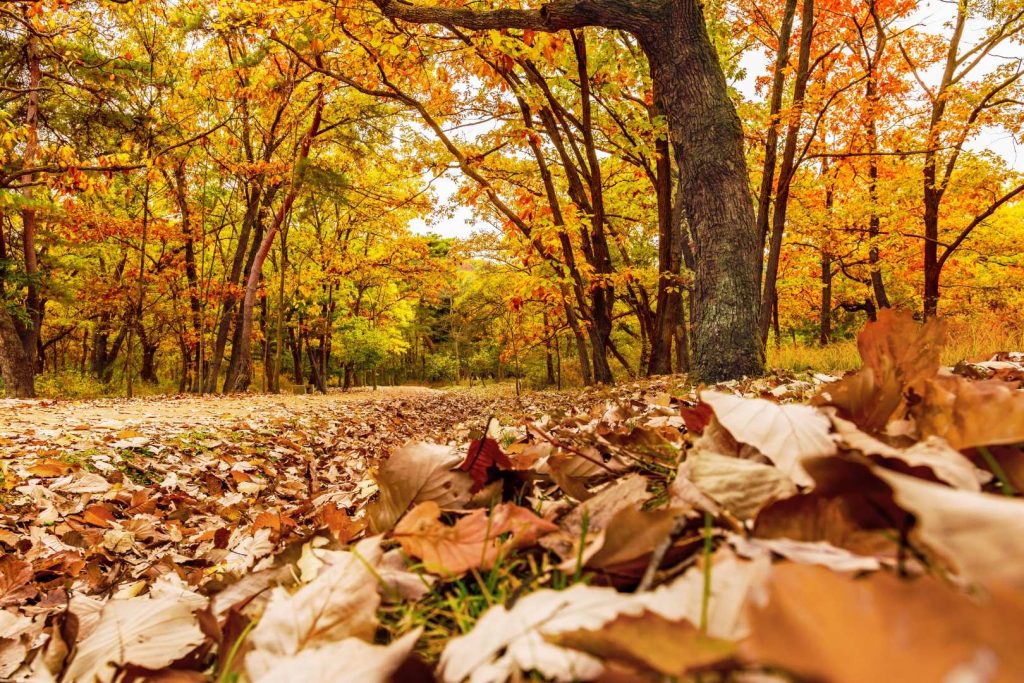by Fraser Hibbitt for the Carl Kruse Blog
On Autumn
‘Season of mists and mellow fruitfulness
Close bosom-friend of the maturing sun;
Conspiring with him how to load and bless
With fruit the vines that round that thatch-eves run’
John Keats’ opening lines of ‘To Autumn’ picture a busy god culminating the over-brimmed ‘clammy cells’ of summer. The full weight of harvest, the force which fills out the core of fruit, the abundance that causes the branch to bend, is under Autumn’s onus. There is something, however, that the word ‘busy’ denies us, but can be recognized in sound. Keats’ lines do not rush nor hurry us; they’re tempered, long-drawn mouthfuls. Autumn also does not harry us like that force of spring. The hot work of summer closes the floodgate irrevocably; it is now time to sit and see the triumph of fruition. In the second stanza of his poem, Keats further personifies Autumn: ‘with patient look, / Thou watchest the last oozings hours by hours.’. It is watching the last tinctures of life being drained out of nature that provide us with a mood, an attitude, an orientation.
The autumnal mood is perhaps best understood in images: the restless swallows beginning to flock; their swift flight south; the falling leaves with colors descending like the sun; the powerful mature sun itself. In the maturity of the year, the flitting birds full of life fly away, and the autumnal mood recognizes this instinctively; their spontaneous arcs through the sky give way to a different kind of attitude, one with a slower ease, balanced between the frivolity of summer and the coming dead of winter. It does no disservice if the wistful tends to partake. All these natural symbols of life’s end seem wise and prompting in their display – how short the joys were, and how short the life.
And slowly creeps in the season of doubtless melancholy, in all the subtlety that that word embraces. We all know the beauty of autumn comes to rest in the cold grasp of winter and its short biting days. Autumn’s beauty is so close in time to that indistinguishable mire of mushed leaves that the inevitable rains bring, that the intensity of this season is, as intense things are, brief and spectacular. Of course, it is the cycle of life, and some may take an instance of hope, will, and understanding from the brown slush that covers the forest floors, or the street pavement, but reason is oft likely to be a poor substitute for the deep currents of our emotional life that perceives in color.
The harvest, the process of the fall, autumn answers the questions of spring and summer. Despite this obvious and wonderful conclusion, autumn produces these inconclusive slow feelings of melancholy and of the wistful; something’s going, but what, if it all comes back again? Life goes on for us, anyhow. We are not great at conclusions, unless they are timed through song, dance, and stories. Things begin for us kindly, without expectation, and it is only obscurely that we are answered, every now and then. It is even harder to know what to do with our feelings. We are not mentally subsumed by this season, and that is perhaps a shame; if it did, we would have a pattern, a way of life, attuned to our earth.
Keats’ poem ends with lines:
‘The red-breast whistles from a garden-croft;
And gathering swallows twitter in the skies’
In fact, the whole last stanza is dedicated to the natural sounds, the songs, of autumn: gnats, lambs, and hedge-crickets. The instances of song are nudges of autumn’s re-orientation of life; its inescapability. For a season is a tangible mental nudge and keeps the necessary rhythm of living. It is the necessary melancholy of passing, the wistful for the old, and, ultimately, the discarding of the two for the leisurely uptake of vitality – for there is nothing else to do, no new labor. It is quite undeniable in the images we know to be something of Autumn, for something of ourselves is in them. Where else do you go for an answer but to an unquestionable companion?
===========
This Carl Kruse Blog homepage.
Contact: carl AT carlkruse DOT com
Other articles on the seasons include Summer, Winter and Spring.|
Find another Carl Kruse article on Buzzfeed.

